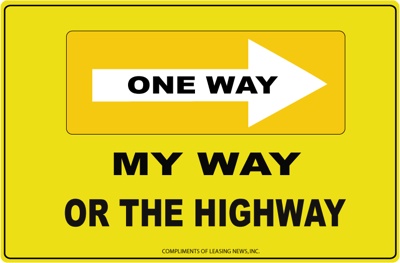“It’s true hard work never killed anybody, but I figure, why take the chance?” — Ronald Reagan Everybody loves an easy life, but some will go further out of their way to get it. We’ve all come across lazy so-and-so’s, skivers, lay-abouts and the odd couch potato, but did you know that the desire for the sedate lifestyle can become habit forming and even addictive? Dedicated skivers will sometimes spend a lot of energy plotting and slinking out of work – sometimes using loopholes in working practices as well as a number of tried and tested excuses. Anything which involves effort is often repulsive to these people; who will always find ways not to bother; and can lead to them deliberately turning down opportunities for the sake of the quiet and the mundane.
“There must be more to life than sitting wondering if there is more to life” — Unknown Not so long ago, the majority of jobs required standing on ones feet all day long. Today, many more require being seated – and many of us sit all day long; from sitting in bed, sitting at the table to eat, sitting in the car traveling to work, sitting at a desk at work, sitting back in the car to return home, and then sitting on the sofa before bed – it’s a easy habit to get into. This addiction however can be very subtle, and can be a surprise to those under it’s influence. If you are sitting while reading this, consider how often you seek a seat. Do you stand at the bar or sit? When visiting friends, do you instantly target the sofa? While on holiday, do you explore your location or sit in the sun?. Do you prefer outdoor games or video games? Extreme lengths of time spent sitting can also lead to the laziness addiction featured at #10 as it can be much harder to get up and be motivated for work once you’ve comfortably sat down.
“It’s MY way or the highway!” — Bill Parcells, Dallas Cowboys There are some people who really ‘get off’ on having their own way. Bosses, domineering partners, testy toddlers, tantruming kids, teens, mothers, teachers, the police – you name it. There can a certain esteem boost to getting ones own way, or having the power to do so at will, and some folks take this and turn it into an addiction. For example, certain bosses I’ve worked ‘under’ are happiest when things are going completely nuts – so they get to dictate and direct, or order people about. Sometimes, a system of management will keep on adding and subjecting rules and regulations to their workforce long after the system runs at it’s smoothest; turning a helpful set of guidelines into unworkable red-tape regimes. Many political systems also demand ‘their way’, and place strict safeguards around to ensure their will is done. However, as Friedrich Nietzsche once said “You have your way. I have my way. As for the right way, the correct way, and the only way, it does not exist.”
“Summoned, one shuffles guiltily into the department of trivia.” — John Sutherland Most of us love to learn and understand things, but how often do we absorb tiny little bits of inconsequential trivia? More often than you may think! Tv advertisements and billboards coax us with facts and figures, magazines deliver tantalizing tit-bits of scandal and gossip, and the internet fills our minds with thousands of facts – some of which are completely wrong. How many of us read the daily newspapers today only for it to become ‘yesterdays news’ tomorrow. The world is full of trivia. A trivia addict is often someone who’s main pleasure in life is to memorize random facts and spout them off to onlookers in an attempt to make themselves look good, and who often dreams of winning the pub quiz or a game show for a huge cash prize. Trivia buffs often wallow in small-talk, gossip, and rumor and sometimes aggrandize subjects the rest of us care little about – such as Latin names for plants, points scored in sports games from 30 years ago, or slight model variations or revisions of vehicles or technology.
“Technology… the knack of so arranging the world that we don’t have to experience it.” — Max Frisch Another often overlooked addition is the habit of constantly occupying the mind with things designed for occupying the mind. Traditionally, alcohol has always been used as the main form of escapism – along with music, games, drugs and procreation. Today we have so many more, and modern technology and media make sure we are only a click away from expunging everyday tedium. It is not uncommon for an addict to switch on a TV or a computer, a Hi-Fi or a video games machine as soon as they enter a room, and will often leave those machines idling in the background as ‘comfort noise’, or just in case they may be of use later. A TV can work very much like a drug, and many drug users claim they use drugs for the escapism rather than any other effect. If the addiction is left unchecked, victims can spend more time removed from our world than actually participating within it.
“Let every man be respected as an individual and no man idolized.” — Albert Einstein Sometimes known as a ‘crush’ a fan of a particular subject, person or group can sometimes become so engrossed in the ‘aura’ surrounding that thing that they become fanatical to the point of idolization. Pop groups and movie stars are usually the favorite, and fanatics can often collect any material relating to their idol they can lay their hands on. Movies such as Star Wars, Star Trek, the Lord of the Rings and the Rocky Horror Picture Show have all seen their fans become addicted to them; often watching and re-watching their favorites hundreds of times over. Idolization addiction can be related to one thing or person, or many things and people. An idolizer of the Punk era may be just as addicted to Punk as a lifetime fan of Harrison Ford is to their hero. It can be as simple as rearranging ones social life around a favorite TV show – which to the addict becomes ‘unmissable’ – or buying a specific magazine for a weekly/monthly fix.
“The trouble is not that players have sex the night before a game. It’s that they stay out all night looking for it.” — Casey Stengel The need for sex in ones life is more prominent in some than in others. To some, the sex drive is relatively subconscious, and the media repeatedly nudges this from afar with advertisements and products designed to stimulate. To others, sex is a compulsion to the point where their own self-esteem hangs upon it. Sexual addiction is not as uncommon as you might think. Addicts usually spend most of their social lives eyeing up potential partners in order to have sex; they are often cocky, brash, and think nothing of ‘making out’ with potential candidates wherever they go. They often treat their partners chauvinistically (i.e. without loyalty, consideration or respect), and think nothing of the ‘one night stand’. To these people, the idea of ‘getting a life’ is to get a sex life; and often their idea of a good night out basically involves manipulating their way back to the bedroom. Some teens develop a more benign form of sex addiction; sometimes called ‘sex adulation’; but usually grow out of it by their early to mid 20’s.
“The world belongs to the enthusiast who keeps cool.” — William McFee Cool is everywhere, and can mean anything from ‘being in with the in crowd’ to being completely unique in ones self. Similarly, anything can be used to promote ‘cool’ and to receive that ego kick and a boost to the self-esteem by recognizing it. Those addicted to ‘cool’ buy the right toothpaste, wear the right cloths, have the right hairstyle, buy the right car, the right fashion accessories, and the right furniture. A serious addict will seek out ‘cool’ jobs (such as a theme park attendant, a volunteer, or a web site designer), a ‘cool’ place to live – and a ‘cool’ building to live within (such as a studio or flat), even going so far as to choose a deliberately ‘cool’ holiday destination (e.g. Amsterdam, Venice, or the Grand Canyon). The danger is that because ‘cool’ as so easily available, it’s easy to become addicted to buying increasingly more things; perhaps in the hope of maintaining some kind of social status. Cool addicts are sometimes quite shallow people, sometimes with a strong need for social acceptance.
“Technology makes it possible for people to gain control over everything, except over technology” — John Tudor Over the last 100 years, technology has diversified and spread into almost every home in the world. There are gadgets and gizmos for everything; including the things we never thought we needed – such as automatic egg poachers, USB fridges, and devices that help you breath the air in a toilet u-bend in case of a fire. Technology is also very cheap today compared to only a few years ago, and now a ‘miracle device’ such as a pocket calculator is almost a disposable object. There are geeks out there, but there are also technology addicts – who’s addiction is so mainstream it becomes almost unnoticeable. A technology addict will ensure that the latest and most cutting edge devices frequent the home. They will almost certainly have a BIG TV, will opt to change their mobile phone many times a year, and will almost certainly have the latest gadgets such as Sat-Nav, Blu-Ray, Hi-Def (and many other hyphenated devices). Sometimes, tiny little objects can give these people away; such as a chrome plated credit card sized micro beard trimmer, or any number of similarly obscure online auction friendly items.
“Deep down, beneath all our insecurities, beneath all our hopes for and beliefs in equality, each of us believes we’re better than anyone else.” — Audrey Beth Stein Being right comes in at number one basically because it is one of the oldest and least diagnosed addictions here, as well as it being very common. First of all, most people who are addicted to being right never get as far as realizing it or having it pointed out. They get to this stage often through a superiority complex re-enforced by getting their own way in discussions – to the point of intimidating others and reproaching their views, while standing rigidly by their own. The payoff in all this is that the person may feel self justified, socially upstanding or just plain smug. ‘Being right’ addicts sometimes give away their intentions and secret vested interest in manipulation by using the word ‘No’ to mean ‘You’re wrong’; at which point the person will offer their own view as the ‘correct’ one. If you fail to comply, and choose to question the ‘being right’ addict, things can often turn very nasty; and it is sometimes wiser to change the subject rather than try to deflect their dogma with open logic.
“In the absence of clearly-defined goals, we become strangely loyal to performing daily trivia until ultimately we become enslaved by it.” — Robert A. Heinlein The Internet – what a wonderful source for us all – and you probably don’t need anyone to tell you that it’s quite addictive. The internet sums up all the addictions above in that it: takes the viewer to a wonderful escapist world where they get their own way by perusing endless trivia, gossip about their idols, search for online sex and cool technology, and they can ‘be right’ in endless anonymous chat rooms and blogs while they sit in their chair and laze the day away. Yes, it’s a wonderful way to exacerbate ones deepest addictions like no other product in the world. We love it.

























